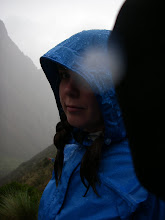My days are filled with interesting things, to me at least. I made this bread with my new bread machine given to me by my mother; it--the bread, that is--smells amazing, but it is too hot to eat. I wanted to surprise Eric with homemade bread, but Jared brought up the fact that I've never used the machine, so it may not come out as amazing as I hope. I think his exact words were, "Welcome home, Honey, I made a mess for you!"
I'm currently researching censorship for an essay I'm writing for my class on the history of rhetoric. I'm intensely interested in it, especially as I've started looking through the two-dozen sources I deemed applicable by the titles alone.
I'm of the mind that everything we think, feel, know, see, are is interconnected. Things we treat as separate issues, to me, cannot be separated because everything deals with everything else, at least slightly. Censorship, for example, ties to politics, to art, to social movements, to literature, to other cultures as well as our own, to the past and present as well as the future. We are all products of it in some way or another, and without it, our lives would not be the same.
Any issue you can name, it's connected to us, if nothing else, and without it, everything as we know would be incredibly different. My latest fixation, so to speak, is health and psychology, prejudice and rhetoric of such things.
That (partially) aside, I would love to tie relevant censorship issues to my paper without including political beliefs.
Just write it down. Tape it to the mirror, to the corner of your screen. Repeat it every paragraph, after every sheep as you fall into slumber: political beliefs are not the basis of your argument; censorship as a rhetorical tool is.
Subscribe to:
Post Comments (Atom)

Nice to see your writings and ramblings finally posted. One of the most difficult things for an artist or a journalist (or any of us, for that matter) is to post our work publicly expecting comment, suggestions, and criticism. Grow from this experience, and take what people say as a chance to learn and improve.
ReplyDeleteOn your topic, how can you separate censorship from politicism?